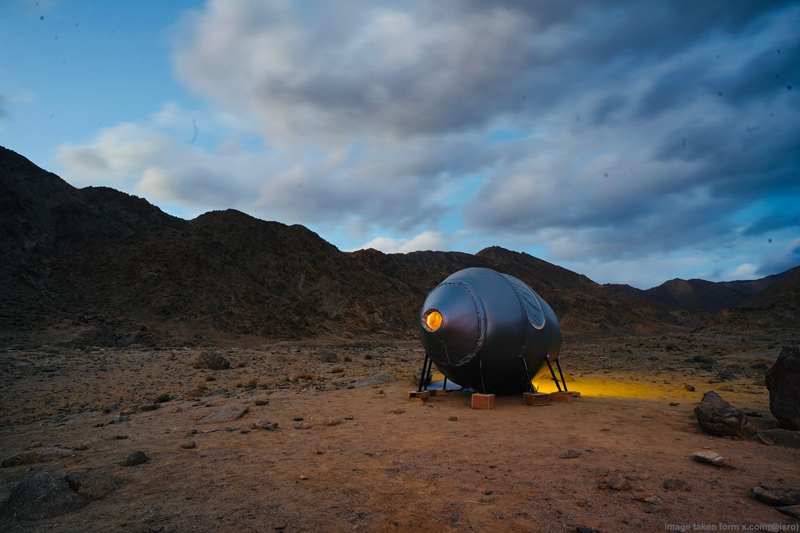
India’s inaugural analogue space mission has kicked off in Leh, with leadership from ISRO’s Human Spaceflight Centre and partnerships including Aaka Space Studio, the University of Ladakh, and IIT Bombay. The mission also has the backing of the Ladakh Autonomous Hill Development Council. This venture is designed to mimic the conditions of a space habitat, tackling challenges tied to establishing human bases off Earth. Aaka Space Studio, founded by Ms. Aastha Jhala, has created a sophisticated habitat prototype that includes features such as an extravehicular activity (EVA) preparation zone, circadian lighting, hydroponic systems, solar power, and environmental sensors.
The high-altitude, Mars-like terrain in Ladakh provides an ideal setting for this mission, with its thin oxygen levels and harsh temperature swings. This location enables the testing of resilient human habitats, advancing technology essential for space exploration.
Over a month-long period, the mission will examine how humans adjust to the isolation and harsh conditions. Findings from this mission are intended to benefit the wider scientific community. Positioned as a vital step in space habitation technology, this mission paves the way for India’s ongoing analogue research efforts, supporting the nation’s ambitions for a lasting human presence on the Moon and Mars. Through this mission, India underscores its commitment to international space exploration and enhancing knowledge of human potential in extraterrestrial environments.









